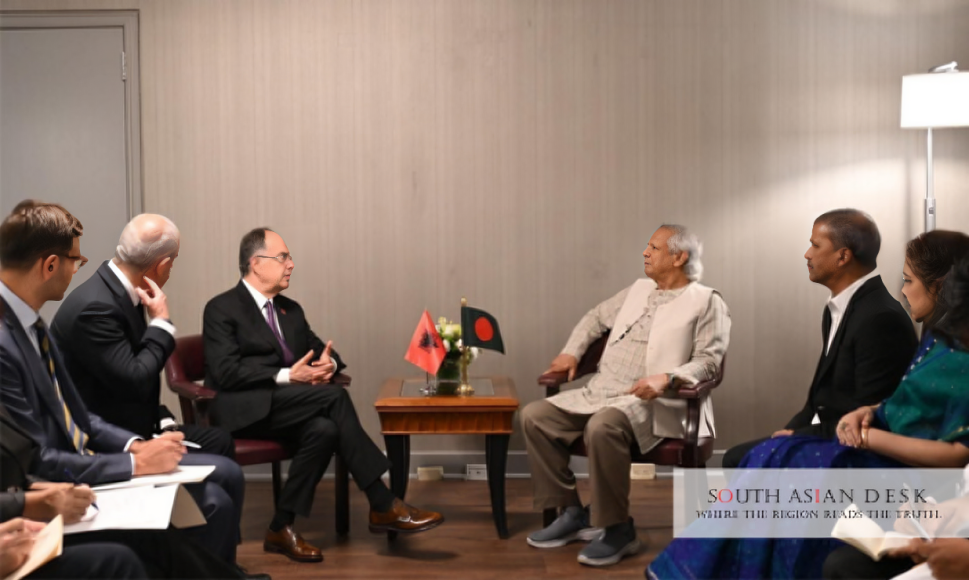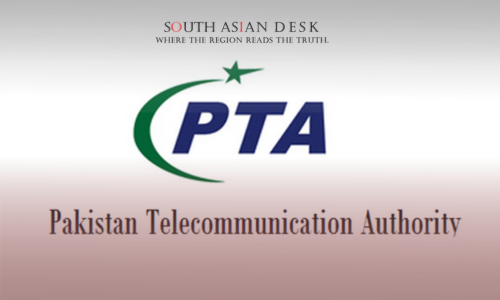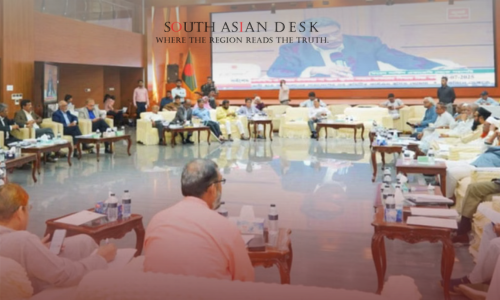Albanian President Bajram Begaj met Bangladesh’s Chief Adviser Professor Muhammad Yunus on Thursday, 25 September, 2025, in New York to discuss recruiting skilled and semi-skilled Albania Bangladesh workers 2025, driven by Albania’s growing labour demands in sectors like tourism and healthcare, with plans for a memorandum of understanding to facilitate the process.
For South Asia, particularly Bangladesh with its burgeoning youth population and high unemployment rates, the pursuit of Albania Bangladesh workers 2025 opportunities represents a vital avenue for economic relief. Remittances from overseas employment already constitute a lifeline for millions of families, contributing over 6% to Bangladesh’s GDP annually.
This emerging partnership could diversify migration destinations beyond traditional Gulf states and Southeast Asia, reducing over-reliance on volatile markets and enhancing worker protections through bilateral agreements. As climate change and domestic job scarcity intensify, such initiatives underscore the region’s need for equitable global labour mobility to foster sustainable development.
Albania Bangladesh Workers 2025: Key Discussions Unfold
During the bilateral meeting on the sidelines of the 80th United Nations General Assembly, President Begaj expressed Albania’s strong interest in tapping into Bangladesh’s manpower reserves to address its expanding labour market. Albanian companies have already submitted applications to hire workers from Bangladesh, focusing on skilled professionals in healthcare, such as doctors, nurses and semi-skilled roles in factories, agriculture, and tourism.
Chief Adviser Yunus welcomed the proposal, highlighting Bangladesh’s dynamic and youthful workforce as ideally suited to bolster Albania’s economic growth. “Bangladesh, with its dynamic and youthful workforce, is well-positioned to support Albania’s economic growth,” Yunus stated, according to the Chief Adviser’s Press Wing.
The talks also touched on educational exchanges, with President Begaj announcing that Albanian universities are ready to welcome Bangladeshi students under existing international enrolment schemes. This multifaceted approach aims to build long-term ties beyond mere labour export.
Streamlining Processes for Bangladeshi Workers
A core focus of the discussions was easing access for potential Albania Bangladesh workers 2025. Currently, Bangladeshi nationals must travel to New Delhi to apply for Albanian visas, a logistical hurdle that discourages applicants. In response, President Begaj indicated that Albania is considering the introduction of e-visas for Bangladeshi citizens to simplify procedures.
Law Adviser Asif Nazrul, who oversees Bangladesh’s Ministry of Expatriate Welfare and Migration, affirmed the country’s capacity to supply a diverse range of manpower. “Bangladesh can provide a wide range of manpower from doctors and nurses to factory and agricultural workers,” Nazrul said, emphasising the urgency of formalising ties. He stressed the importance of signing a memorandum of understanding to streamline recruitment, ensuring ethical practices and worker rights safeguards.
These measures align with broader efforts to institutionalise cooperation, including proposals for high-level official visits between Dhaka and Tirana. While specific quotas for Albania Bangladeshi workers demand 2025 remain undisclosed, the initiative responds to Albania’s projected labour shortages, with its economy growing at approximately 3.5% annually and unemployment hovering below 12% in key sectors.
Albania Bangladeshi Workers Demand 2025: Sectoral Opportunities
Albania’s labour market, particularly in tourism along its southern coastline, presents untapped potential for Albania Bangladeshi workers demand 2025. President Begaj described the region as a “promising destination” for Bangladeshi travellers and workers alike, hinting at collaborative ventures that could blend employment with cultural exchange.
In healthcare and manufacturing, the demand stems from demographic shifts and post-pandemic recovery. Bangladesh’s Bureau of Manpower, Employment and Training (BMET) reports over 13 million expatriates globally, yet new markets like Albania could absorb thousands annually. Albanian companies’ proactive applications signal immediate interest, though exact figures are pending official tallies.
For South Asian workers, this comes at a critical juncture. Bangladesh’s interim government, led by Yunus, has prioritised safe migration amid recent domestic unrest, making Albania Bangladesh workers 2025 pacts a strategic priority. Early indications suggest wages in Albania could average around USD 920 monthly (ALL 82,210), competitive with entry-level roles in similar European destinations.
Background
Bilateral relations between Albania and Bangladesh, though nascent, have gained momentum through multilateral forums like the UNGA. This meeting follows a scheduled engagement outlined on Wednesday, 24 September, 2025, where Yunus’s itinerary included talks with Begaj at 5:00 PM. Historical ties trace back to shared commitments in international bodies, but labour migration marks a practical escalation. Albania’s diaspora strategy (2021–2025) emphasises global talent inflows, while Bangladesh’s expatriate policies focus on protecting Albania Bangladeshi workers demand 2025 through skill certification and pre-departure training.
No prior formal labour agreements exist, but the discussions build on Albania’s visa liberalisation trends, including temporary exemptions for select nationalities until 31 December, 2025. For context, Bangladesh’s outbound migration surged 15% in 2024, underscoring the timeliness of these overtures.
What’s Next for Albania Bangladesh Workers 2025
As follow-up engagements materialise, the signing of the proposed memorandum could pave the way for pilot recruitment drives by mid-2026, potentially deploying the first cohorts of Albania Bangladesh workers 2025. Enhanced visa regimes and joint training programmes will be pivotal, ensuring that Albania Bangladeshi workers demand 2025 translates into sustainable opportunities. Stakeholders anticipate announcements from both foreign ministries imminently, heralding a new chapter in South Asian-European labour collaboration.
In the evolving landscape of global migration, the Albania Bangladesh workers 2025 initiative promises not just jobs, but a bridge for mutual prosperity.
Published in SouthAsianDesk, September 26th, 2025
Follow SouthAsianDesk on X, Instagram, and Facebook for insights on business and current affairs from across South Asia.






